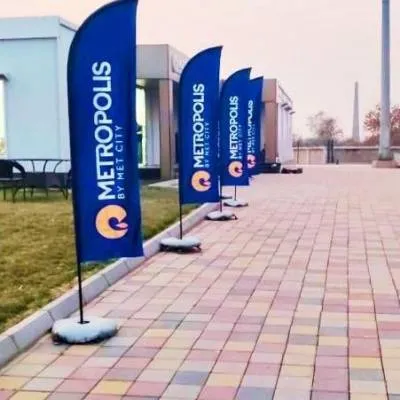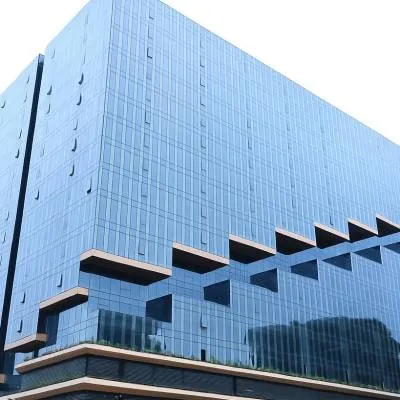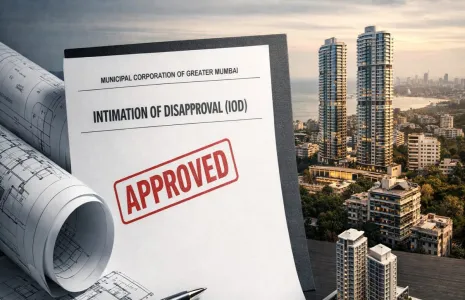Schedule a Call Back
Code of Conduct
2019-09-01

Together, the Insolvency and Bankruptcy Code and the Real-Estate (Regulation and Development) Act 2016 will bring positive change to the interaction between home buyers and developers.
While the objective of the Insolvency and Bankruptcy Code 2016 (?Code?) is to provide a framework relating to reorganisation and insolvency resolution of corporate persons, partnership firms and individuals in a timebound manner for maximisation of value of assets of the preceding class of such persons, thereby considering the interest of all the stakeholders in a resolution process, the Real Estate (Regulation and Development) Act 2016 (?RERA?) was enacted as a beneficial legislation to protect the interests of the consumer/allottees and to regulate and promote the real-estate sector, making developers-promoters accountable to their ultimate buyers, thereby bringing in transparency in real-estate projects.
Need for inclusion of allottees (?Home Buyers?) of real-estate project as Financial Creditors under the Code
In the recent past, the unscrupulous activity and diversion of funds by the developers in the timely handing over of possession of flats to Home Buyers left them suffering. The rulings of the National Company Law Appellate Tribunal and the Apex Court in Nikhil Mehta v. AMR Infrastructure, Anil Mahindroo v. Earth Iconic Infrastructures, Jaypee Infratech (Chitra Sharma and ors. v. Union of India and ors.) and Amrapali Group (Bikram Chatterjee v. Union of India) have acted as a trigger for the 2018 Amendment in the Code after recognising the plight of Home Buyers.
The amendments
The Insolvency and Bankruptcy Code (Second Amendment) Act 2018 (?2018 Amendment?) added an explanation to include an allottee of a real-estate project as a Financial Creditor and clearly provided that any amount raised from such an allottee shall be deemed to have the commercial effect of a borrowing. It also conferred allottees the right of representation in the Committee of Creditors (?COC?) by an authorised representative.
Developers have challenged the 2018 Amendment before the Apex Court on various grounds. In Pioneer Urban Land and Infrastructure and ors. v. Union of India (?Pioneer?), the Apex Court, while deciding the challenge, relied on the recommendations of the Insolvency Law Committee, which deliberated on the meaning of ?Financial Debt? and non-inclusion of Home Buyers either under the definition of ?financial? or ?operational? creditors, and concluded that it is prudent to include an explanation that such creditors (i.e. Home Buyers) fall within the definition of Financial Creditors. The thrust was to understand that allottees who give advances to developers to undertake a real-estate project are actually financing the developer to complete the project. Therefore, they fall within the definition of a Financial Creditor and the matter comes under the ambit of a ?Financial Debt?.
While upholding the validity of the 2018 Amendment, the Apex Court considered the view that inclusion of Home Buyers and their entitlement of representation under COC might possibly result in malicious filings by Home Buyers, and thus laid down factors to be considered so that a genuine developer/builder is not harassed by an erring allottee who has initiated a Section 7 IBC proceeding only to seek refund or coerce a serious developer to cough up the monies the developer was entitled to take from such a Home Buyer. The Apex Court has stressed that the National Company Law Tribunal (?NCLT?), while deciding an application of Home Buyers under the Code, will inter alia include verifying the claim of such Home Buyers, whether they are defaulters and entitled to a refund or whether the insolvency process has been invoked with malicious intent or by a speculative investor who is seeking redressal as a coercive measure.
In the meanwhile, the Insolvency and Bankruptcy Code (Amendment) Act 2019 (?2019 Amendment?) also received the President's assent on August 5, 2019, which fortifies the Home Buyers? claim as a Financial Creditor and clarifies that an authorised representative of a particular class of Financial Creditors (in this case, of Home Buyers) shall be entitled to vote in the COC on behalf of all the Home Buyers and consider the majority decision of the Home Buyers which decision shall be construed in terms of 50 per cent of voting share of such class of Home Buyers.
Approaches of IBC and RERA: Differences and overlaps
After the 2018 Amendment and 2019 Amendment to the Code, genuine Home Buyers have multiple options to redress their grievances, be it an IBC proceeding for refund of legitimate monies advanced to a developer or the option to go to RERA to get possession of the premises or compensation or both, or avail a suitable remedy under the Consumer Protection Act 1986 for deficiency in the services of a developer. However, the duty would be cast on Home Buyers as to the ultimate remedy they wish to seek; only thereafter, should they initiate proceedings before the appropriate forum. There are bound to be overlaps with regard to which forum is apt but the Apex Court has given a few examples as to what relief under the Code can be entertained by NCLT. We may clarify that in cases of builders? incapacitation to complete a project, the best recourse would be under the provisions of the Code.
In conclusion
In the Amrapali matter, the Apex Court cancelled the RERA registration of the projects and appointed NBCC to complete the construction, thus protecting the Home Buyers. Although the Apex Court has given direction to build a robust infrastructure so that NCLT is equipped to handle the Home Buyers? application, it will be a challenge to decide the numerous petitions that are expected to be filed considering the present state of the economy. While genuine developers who have complied with the provisions of the law and performed their obligations need not worry, the fulsome rights given to an allottee may, in certain cases, make developers extra cautious regarding compliance rather than focusing on the actual completion of the project. A developer that should ideally put its energies in the project may become a victim to proceedings from various corners by an allottee who just wishes to harass the developer. However, the amendments in the Code and RERA will bring in a lot of positive change where the project will be completed in time and allottee who are sincere about getting their units will get their dream homes in time. In future, these initiatives will surely change the mindset of both the developer and the Home Buyer.


Subscribe Now
Subscribe to our Newsletter & Stay updated










